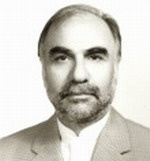The Year 1390 and the Increase in Pressure on Iran

IRD: The history of Iran-EU relations is mostly based on bilateral economic ties. However, there have always been trivial issues like human rights involved in this relationship as well. Despite this fact, the EU has always tried to keep decent relations with Iran due to the importance of this country for the union. However, no major improvement of ties was seen in this relationship. Today the relationship between the European Union and Iran has entirely changed. Especially during the last few years, and after last year’s Security Council Resolution on sanctions against Iran, this economic relationship has changed its course, the EU has ignored the benefits Iran has had for the union, and began to look at Iran as a security threat. This perspective has always been there in our relations with the United States. In other words, the United States has always considered Iran a security issue, but the European Union mostly sought “soft” relations with Iran rather than a hard, security form of relations. This is the first time in the history of Iran and EU relations when the perspective of the EU has changed and a hard approach has become its dominant mode. I believe that this is the most important event against Iran in the EU.
This is while the European Union was very keen to maintain its relations with Iran since it was losing its former position in the region. The European Union had lost its power and influence in the Middle East; especially in countries like Iraq, Afghanistan and the Persian Gulf countries due to the increasing power and influence of the US in the region. Therefore, the EU tried to maintain its relations with Iran as an influential country in the region, to maintain the balance of power. Currently, due to this change of approach by the EU, this balance of power is being destroyed. The new EU-Iran strained relations and the lack of any cooperation between the two sides has turned economic-political issues into political-security ones, and the EU is gradually losing the position it could have had in the region.
We also have to look at the recent developments taking place around the world, which are at odds with this issue. The recent developments talking place in Northern Africa and the Middle East could increase Iran’s power under ordinary circumstances. In other words, these developments have created elements that could have been to Iran’s benefit in normal situations. Iran, however, is not in a normal situation now due to the recent resolutions against it; one example of this abnormal situation is the new political-security perspective taken by the EU toward Iran. The current developments have actually potentially strengthened Iran, but we’ll have to wait and see if Iran is able to turn this potential power into actual power and benefit from the situation.
In regards to the bilateral ties between Iran and Europe, we have to pay attention to the fact that visits from Iranian high officials to Europe and vice-versa have ceased for some time now. The recent Security Council resolution has provided the excuse for the EU to cease making these trips.
Last year, we only witnessed the foreign minister of Germany visiting Iran, which was only because of Germany’s domestic interests. Two German nationals were arrested in Iran, whom Germany claimed were journalists, and therefore the German foreign Minster visited Iran for only a few hours in an attempt to free these prisoners. Attempting to free their nationals that are prisoners in other countries is not rare by Europeans. Their officials are always willing to pay visits to other countries in order to free their nationals. Nevertheless, did we achieve any positive results from the visit of Germany’s foreign minster? As I followed the news from both sides concerning this visit, I found no positive achievements in this case.
If we accept that the EU has changed its previous behavior toward Iran to a more harsh and security-based one, neglecting its economic ties with Iran, and also accept that our country’s potential power has risen due to the recent developments; then we have to find a way to replace the new EU approach with the historically soft one and also a way to turn this potential power achieved through the recent developments into actual power for Iran, and open up means to further relations with the Arab world and the EU.
The importance of finding solutions to revive our economic ties with Europe becomes more vivid when we look at our economic situation, especially in the private sector. Although due to the partial implementation of Article 44 of the constitution our economy was supposed to prosper, especially in the private sector, by contrast we are witnessing a weakening private sector because of the difficulties facing the country due to sanctions.
Sanctions imposed by the EU have a greater effect on the private rather than the public sector, or to sectors that are closer to the government; confusing the private sector.
I believe that last year was a very tense year for Iran. International pressure on Iran increased. Not only the US and the EU, but also other countries which had relations with these two and some which were even our former friends, increased their political-economic pressure on Iran.
It seems like the Foreign Ministry of Iran, as the executer of foreign policy, has a heavy burden on its shoulders next year. Our diplomatic organizations should put a greater effort into finding a new solution in order to increase our dialogue with the EU, and use a political-economic approach instead of a political-security one in our interactions. Therefore, I believe that the year 1390 is a very problematic one for us, and if we do not act wisely, economic or political-security pressures on Iran will increase, even though our potential power has increased in the region.

